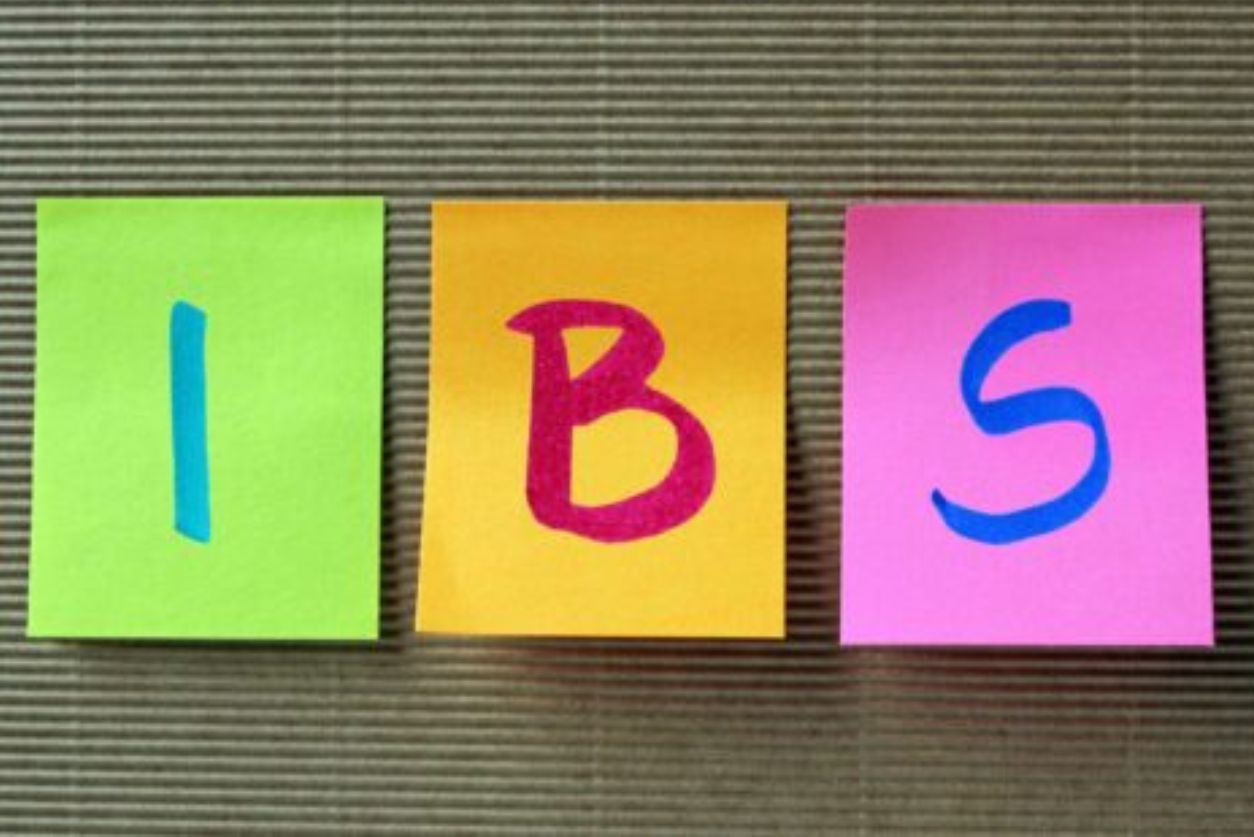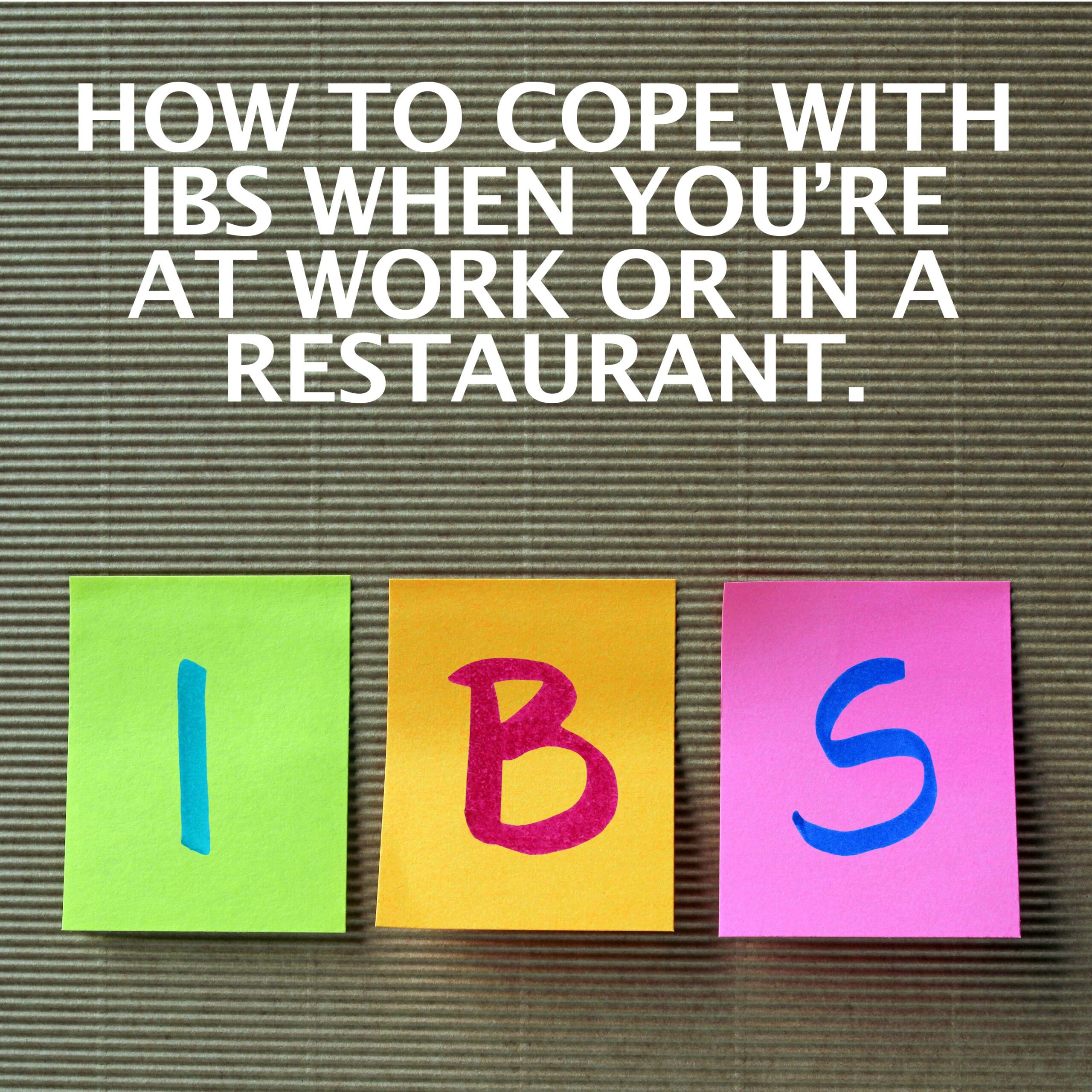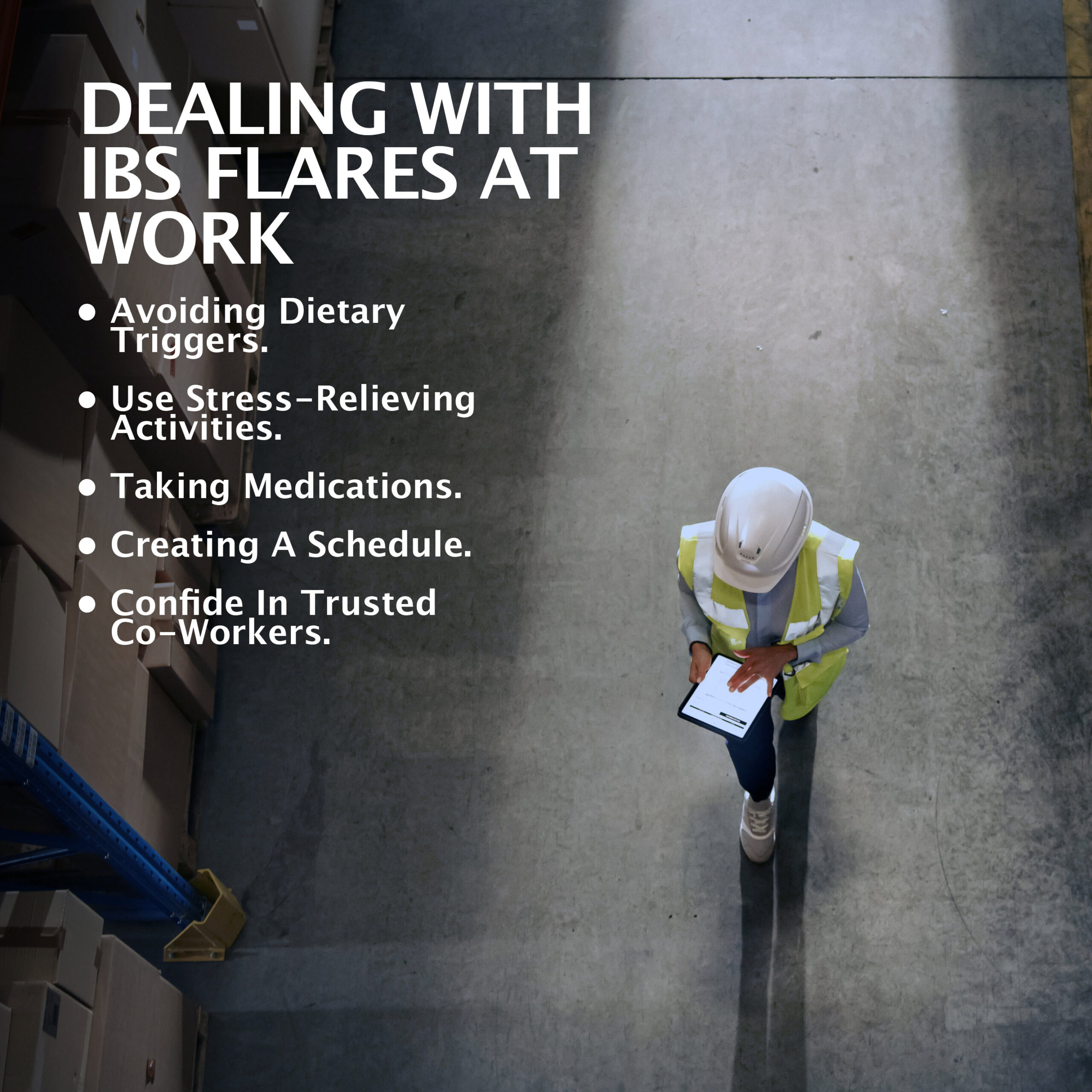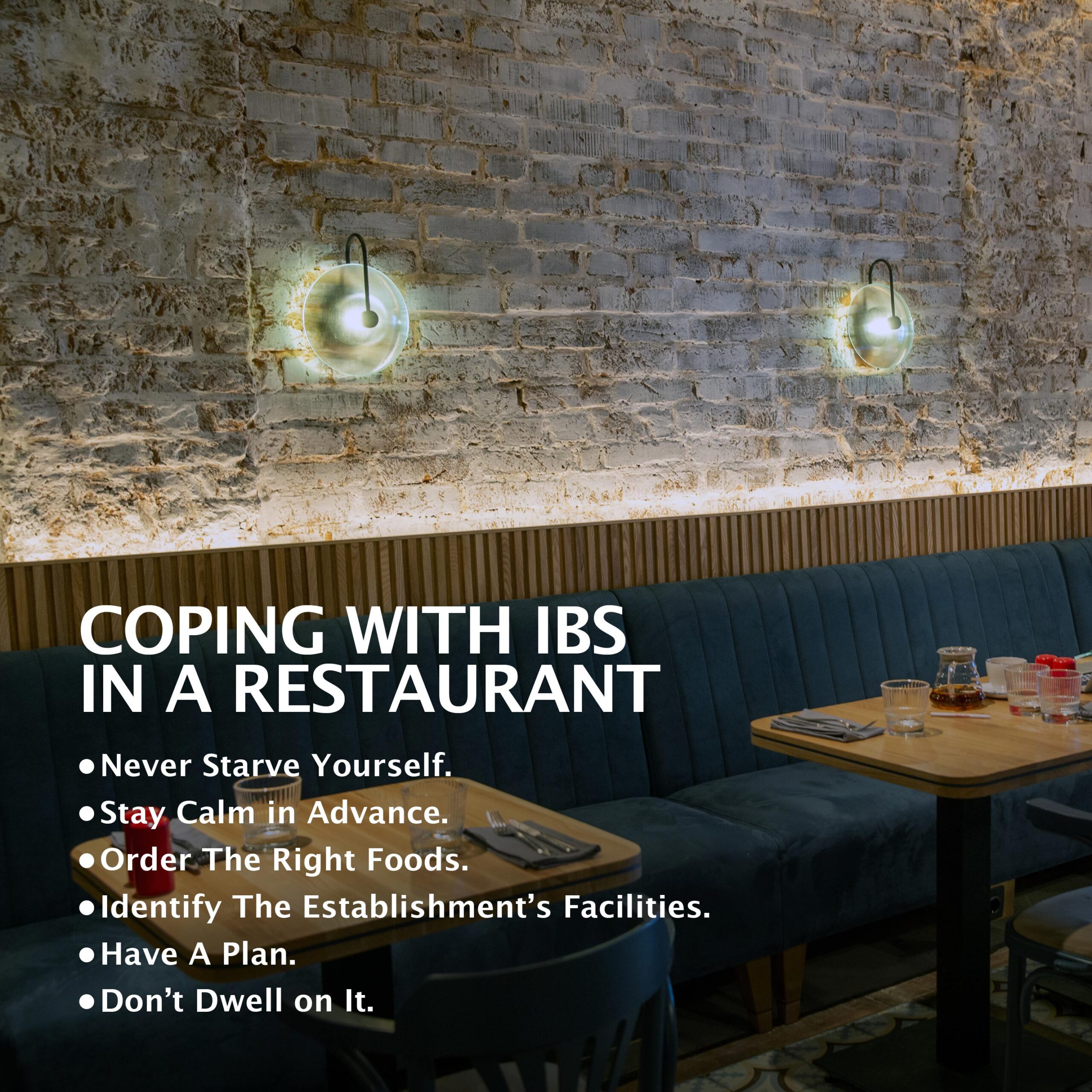
How To Cope with IBS When You’re at Work or In a Restaurant
Digestive system issues can be frustrating and debilitating. One very challenging digestive issue is irritable bowel syndrome (IBS).
Overview
IBS affects your large intestine but does not cause damage to the organ’s tissues or composition since it is a functional illness.
IBS is classified as a gut-brain interaction disorder. These disorders are characterized by the brain and gastrointestinal tracts having trouble working together. This type of disruption makes your colon much more sensitive and causes your bowel muscles to contract. As a result, you may experience uncomfortable symptoms.
IBS is also commonly referred to by several other names, including spastic colon, irritable colon, irritable bowel, and a nervous stomach.

Different Types Of IBS
IBS is separated into three different categories: IBS-C, IBS-D, and IBS-M.
- IBS-C – This form of the disorder is known to cause frequent bouts of constipation or hard and lumpy stools.
- IBS-D – This IBS form routinely has incidents of diarrhea or loose stools.
- IBS-M – Sometimes called the “mixed classification,” includes alternating incidents of diarrhea and constipation.
Causes
IBS has several primary causes, including:
- Bowel Motility Issues – IBS sufferers often experience motility problems within their digestive tracts. This means your abdominal muscles either push food through your gut too quickly or too slowly.
- Brain-Gut Problems – Occasionally, the brain and digestive system fail to communicate properly. This can result in your gut’s nerves acting abnormally.
- Nerve Sensitivity – You may have sensitive nerves inside your digestive network, which can bring on a variety of symptoms.
Risk Factors
Your risk for IBS may increase if you:
- Have a family history of it.
- Experience food intolerance.
- Have a history of anxiety.
- Witnessed some form of abuse.
- Previously had a significant digestive tract illness or infection.
- Are having severe emotional, social, financial, or professional stress.
- Gender may also play a role since IBS is more prevalent in women.
Symptoms
Every case is different. IBS typically produces several common symptoms like:
- Diarrhea (in those with IBS-D).
- Constipation (in subjects with IBS-C).
- Bloating.
- Gas.
- Abdominal cramping.
Often symptoms lessen following a bowel movement. These episodes often occur in flares, which means they come and go for prolonged periods. A minority of patients experience symptoms regularly.
Complications
IBS does not cause any structural damage to your digestive system. It also does not increase your risk for more severe problems (like inflammatory bowel disease or colon cancer). But IBS can produce a certain degree of complications.
Those with IBS-D stand at an increased risk of losing significant amounts of water and nutrients. Over time, this could lead to dehydration. If you are severely dehydrated, you may need immediate medical attention.
Above all, IBS symptoms can impact your quality of life. Symptoms can become severe enough to interfere with your personal and social lives.
Diagnosis
Symptoms produced by IBS are like many other digestive conditions, so a diagnosis may not happen immediately.
Occasionally, your doctor might be able to diagnose your IBS after reviewing your symptoms and lifestyle habits. It is more likely that you will need to order a colonoscopy, blood test, or stool sample to rule out other similar conditions.
Treatment Options
IBS cannot be cured, but certain treatments might ease or limit symptoms.
Food items that are spicy, fried, or contain dairy are common culprits that can trigger a flare-up.
Medications can also play a role. You may be prescribed different medications depending on your type of IBS. Some patients need several different prescription drugs to control specific symptoms.
Specific home care remedies might lessen or eliminate your symptoms, including:
- Limiting or avoiding irritants like alcohol and tobacco.
- Reducing your intake of carbonated beverages like soda.
- Decreasing your amounts of caffeine.
- Not consuming large meals.
- Minimizing stress as much as possible.
Doctors also recommend exercising as much as you can. Physical activity is believed to improve your digestive system.
Coping Mechanisms When Working or Socializing
IBS flares can limit your quality of life and make routine activities like going to work or socializing a significant challenge. So, it’s important to keep some of these coping mechanisms in mind.
Dealing With IBS Flares at Work
IBS can heighten your stress and make productivity difficult. Luckily, you might overcome these episodes by:
- Avoiding Dietary Triggers – While at work, only eat bland, non-spicy foods and refrain from anything that is fried or contains dairy.
- Use Stress-Relieving Activities – During breaks or any downtime, ease the tension by participating in calming activities like reading, listening to music, taking a walk, or speaking with family.
- Taking Medications – If you use medications to help control IBS, you must be vigilant about taking them. Even when work is demanding and time-consuming, you must follow dosage schedules.
- Creating A Schedule – Conditioning your body to follow a schedule for eating, taking breaks, and visiting the bathroom can ease symptoms and tension.
- Confide In Trusted Co-Workers – Should a flare-up be especially trying, you might have to leave work or miss important events like meetings or presentations. You may need to tell a trusted co-worker or supervisor so they can plan accordingly.

Coping With IBS In a Restaurant Setting
Having IBS does not mean you can’t enjoy a nice meal with family and friends at a restaurant. To avoid flare-ups in a restaurant, it’s important to:
- Never Starve Yourself – Not eating only increases your appetite. This will likely cause you to eat more later which could trigger or worsen flare-ups.
- Stay Calm in Advance – It is common for people to grow nervous before stressful events. If you have IBS, visiting a restaurant can increase your tension levels. In the hours leading up to your reservation time, use breathing exercises and relaxation techniques.
- Order The Right Foods – You should always order the simplest and least spicy/sauced menu items. You should also limit any alcohol, caffeine, and smoking.
- Identify The Establishment’s Facilities – When entering the restaurant, it’s a good idea to locate the bathroom. Then, you won’t have to scramble or panic in a worst-case scenario.
- Have A Plan – You should always have a plan in place. This can include arranging transportation home and notifying a trusted friend or family member of your circumstances.
- Don’t Dwell on It – Being concerned is only natural. But you should not dwell or be embarrassed about your illness. Above all, enjoy your night out. Overthinking about your IBS can increase your tension level.

Contacting Us
If you believe you may have IBS, please consult with us. Our practice began more than 15 years ago and has emerged as one of the leading gastroenterology practices in central Florida. We perform several diagnostic procedures using state-of-the-art equipment in a friendly, comfortable, and inviting atmosphere. Patient care is always our top priority. Contact us today!